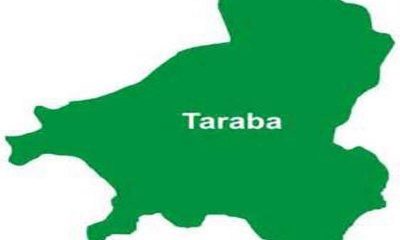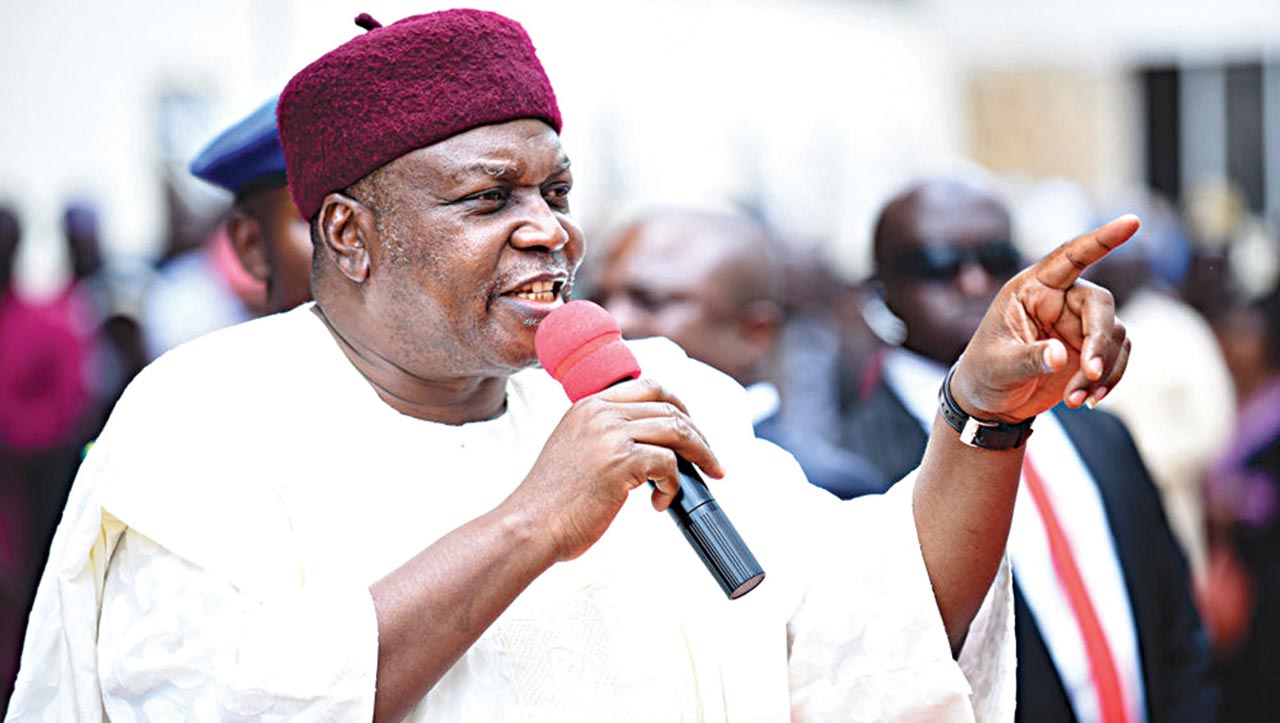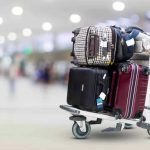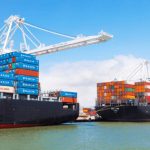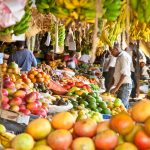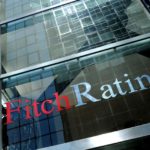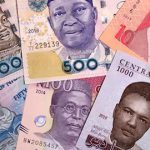Economy
Taraba Governor Lifts Ban on Employment
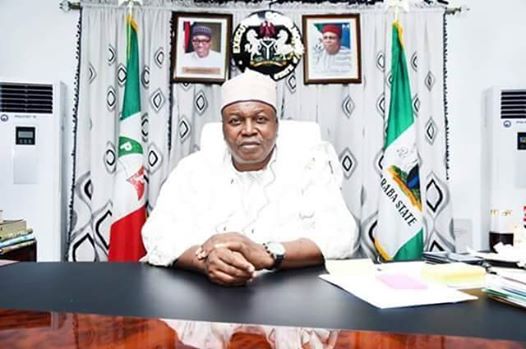
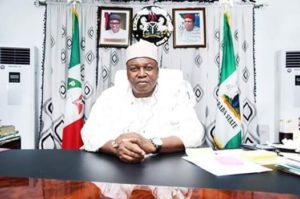
By Modupe Gbadeyanka
Taraba State Governor, Mr Darius Dickson Ishaku, has announced the removal of embargo earlier placed on employment in the state.
Addressing parents of students of Taraba State indigenes studying in Venezuela, who visited him at his office on Friday, the Governor noted that he was optimistic that the Rescue Mission would succeed in the state considering the level of its acceptance by the people.
He further said apart from footing some of the outstanding allowances of the students as well as facilitating their return to the country, plans have also been completed to give them permanent employment so that the state can benefit from the knowledge they acquired during their studies in Venezuela.
The Governor explained that the objective of the Rescue Agenda is to give the people of the state a sense of belonging, particularly to rescue them from their immediate challenges, stressing that the Rescue Agenda was not restricted to a particular group of people but all-encompassing for the common good and success of people of the state.
He explained that the reason for lifting the ban on employment was because of the wide gap in the state civil service which has become expedient to correct with utmost urgency, reiterating his administration’s resolve to ensure that all loopholes that exists in the service are expeditiously corrected to have a vibrant workforce.
Mr Ishaku called on youths in the state willing to contribute their quota to the development of the state and the rebuilding of the civil service, which his administration is determined reorganise, to go to the state Civil Service Commission to obtain forms for employment.
Economy
Oyetola Orders Dibursement of Cabotage Vessel Financing Fund
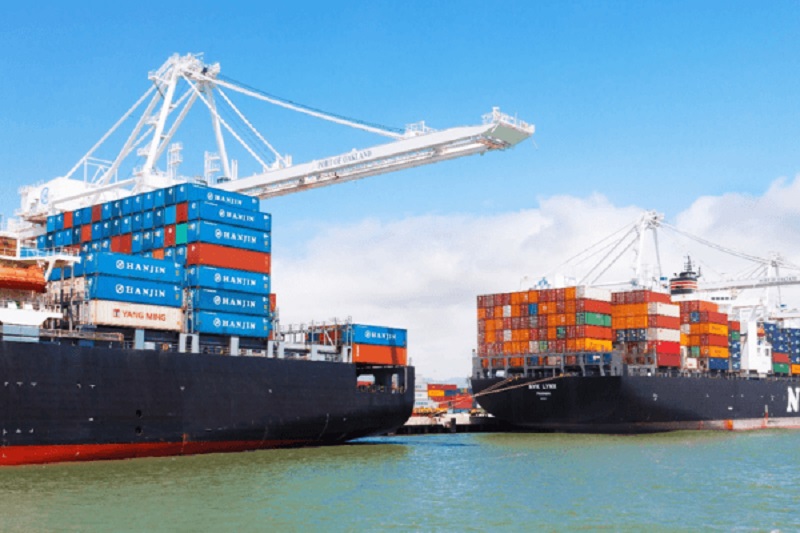
By Adedapo Adesanya
The Minister of Marine and Blue Economy, Mr Adegboyega Oyetola, has instructed the Nigerian Maritime Administration and Safety Agency (NIMASA) to initiate the long-awaited disbursement process for the Cabotage Vessel Financing Fund (CVFF).
This directive marks a significant shift from over two decades of administrative stagnation and ushers in a new era of strategic repositioning of Nigeria’s indigenous shipping.
The CVFF, established under the Coastal and Inland Shipping (Cabotage) Act of 2003, was designed to empower Nigerian shipping companies through access to structured financing for vessel acquisition. However, successive administrations failed to operationalize the fund—until now.
According to the Minister, the disbursement of the CVFF will represent not just the release of funds, but a profound commitment to empowering Nigerian maritime operators, bolstering national competitiveness, and fostering sustainable economic development.
“This is not just about disbursing funds. It’s about rewriting a chapter in our maritime history,” said Mr Oyetola. “For over 20 years, the CVFF remained a dormant promise. Today, we are bringing it to life—deliberately, transparently, and strategically,” he stated.
NIMASA, in alignment with the Minister’s directive, has already issued a Marine Notice inviting eligible Nigerian shipping companies to apply.
Qualified applicants can access up to $25 million each at competitive interest rates to acquire vessels that meet international safety and performance standards.
The fund will be administered in partnership with carefully selected and approved Primary Lending Institutions (PLIs), ensuring professional and efficient disbursement.
“We are not merely funding vessels; we are investing in a future where Nigerian shipping companies can stand shoulder-to-shoulder with their international counterparts,” Mr Oyetola said.
“This is a turning point—one that affirms our commitment to local content, economic resilience, and maritime sovereignty,” he added.
The disbursement of the CVFF is anticipated to yield far-reaching benefits. It will enable the growth of a stronger, self-sufficient shipping fleet, generate employment opportunities, stimulate local shipbuilding and repair industries, and significantly reduce capital flight associated with foreign vessel chartering.
“We are doing what should have been done years ago—because our vision is clear.”
“A strong indigenous fleet is not just a matter of pride; it is a strategic national asset. Through this intervention, we will be securing jobs, strengthening our economy, and redefining our place in the global maritime economy,” said Mr Oyetola.
Economy
Nigeria’s Inflation Rate Jumps to 24.23% in March 2025
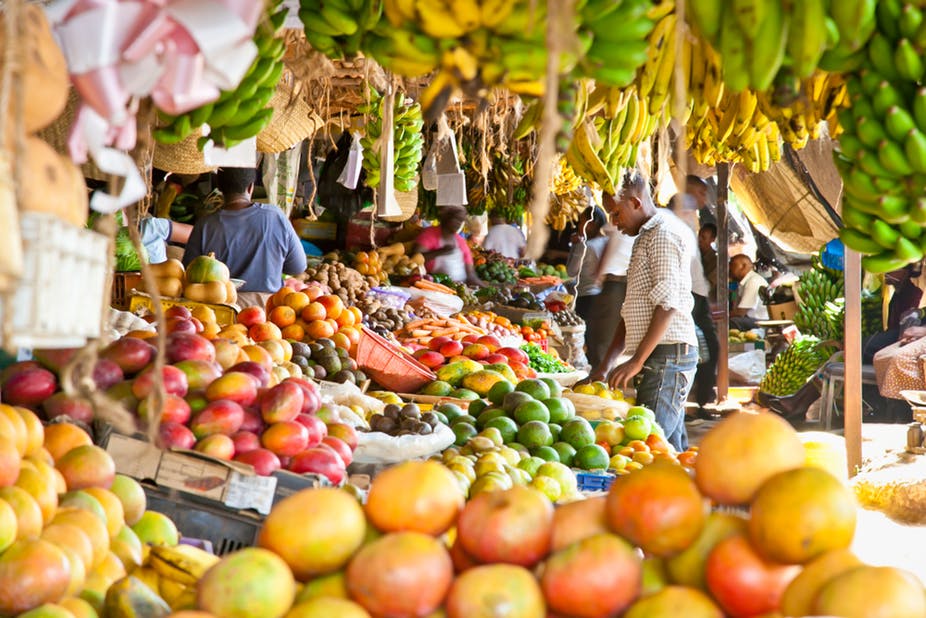
By Adedapo Adesanya
Nigeria’s inflation rate edged up to 24.23 per cent in March, according to the National Bureau of Statistics (NBS) on Tuesday.
It was the first time since the Consumer Price Index (CPI) has risen since it was rebased in January by the stats office, which made the base year 2024 from the previous 2009.
The new rate indicates an upward movement of 1.05 per cent from the 23.18 per cent reported in February 2025, signalling a return to levels (24.48 per cent) recorded in the beginning of the year after the CPI rebasing.
This latest figures came at a time that the United States President, Mr Donald Trump, has unleashed a trade war that has triggered a sharp selloff in the price of oil, Nigeria’s main export and led to the weakening of the Naira, which will push up import costs, though this should reflect in the next CPI numbers next month.
Although the US administration announced a 90 per cent day pause on the 14 per cent reciprocal tariffs last week, its felt impact remains, as it continues to fight China.
The Nigerian government have announced plans to boost its non-oil imports to tackle the blowbacks from the trade war, which will heavily impact the global economy.
The rise in inflation will also present a challenge to the Central Bank of Nigeria (CBN) regarding interest rates, which it paused at its last meeting.
Economy
Fitch Sees Nigeria’s External Debt at $5.2bn, Maintains Stable Outlook

By Adedapo Adesanya
Fitch Ratings has projected Nigeria’s external debt service to reach $5.2 billion this year from $4.7 billion in 2024, though it maintained a stable outlook for the country in its latest rating.
The agency also cited a minor delay in the payment of a Eurobond coupon due on March 28, 2025, as a reflection of persistent challenges in public finance management.
The rating firm had upgraded Nigeria’s long-term foreign-currency issuer default rating to ‘B’ from ‘B-’, with a stable outlook.
The $5.2 billion in debt service, according to Fitch, includes $4.5 billion in amortisation payments and a $1.1 billion Eurobond repayment due in November.
The development highlights the growing pressure on public finances despite ongoing economic reforms by the federal government.
Fitch noted, “The government external debt service is moderate but expected to rise to $5.2 billion in 2025 (with $4.5bn of amortisations, including a $1.1 billion Eurobond repayment due in November 2025), from $4.7 billion in 2024, and fall to $3.5 billion in 2026.”
It warned that although Nigeria’s external debt service remains within manageable levels, high-interest costs, weak revenue performance, and limited fiscal space remain significant concerns, adding that general government debt was expected to remain at about 51 per cent of GDP in 2025 and 2026.
However, it expressed concerns over the government’s revenue position, noting that interest payments will consume a substantial portion of income.
“We expect general government revenue-to-GDP to rise but to remain structurally low (averaging 13.3 per cent in 2025–2026), largely accounting for a high general government interest/revenue ratio, above 30 per cent, with federal government interest/revenue ratio of nearly 50 per cent,” it stated.
The company observed that Nigeria’s gross reserves rose to $41 billion at the end of 2024, before declining to $38 billion due to debt service payments.
Despite this, Fitch expects the country’s reserves to average five months of current external payments over the medium term, above the median for similarly rated economies, adding that recent policy reforms had contributed to increased foreign exchange inflows and better monetary stability, with inflation projected to average 22 per cent in 2025.
“Net official FX inflows through the CBN and autonomous sources rose by about 89 per cent in Q4 2024. We expect continued formalisation of FX activity to support the exchange rate, although we anticipate modest depreciation in the short term,” a part of the report stated.
It commended the government’s commitment to economic reforms, including the removal of fuel subsidies, liberalisation of the exchange rate, and tightening of monetary policy, noting that these steps had improved policy credibility and strengthened Nigeria’s ability to absorb shocks.
However, the agency warned that risks to Nigeria’s external and fiscal position remained, particularly if oil prices fall or policy implementation slows down.
-

 Feature/OPED5 years ago
Feature/OPED5 years agoDavos was Different this year
-
Travel/Tourism9 years ago
Lagos Seals Western Lodge Hotel In Ikorodu
-

 Showbiz2 years ago
Showbiz2 years agoEstranged Lover Releases Videos of Empress Njamah Bathing
-

 Banking7 years ago
Banking7 years agoSort Codes of GTBank Branches in Nigeria
-

 Economy2 years ago
Economy2 years agoSubsidy Removal: CNG at N130 Per Litre Cheaper Than Petrol—IPMAN
-

 Banking2 years ago
Banking2 years agoFirst Bank Announces Planned Downtime
-

 Sports2 years ago
Sports2 years agoHighest Paid Nigerian Footballer – How Much Do Nigerian Footballers Earn
-

 Technology4 years ago
Technology4 years agoHow To Link Your MTN, Airtel, Glo, 9mobile Lines to NIN



